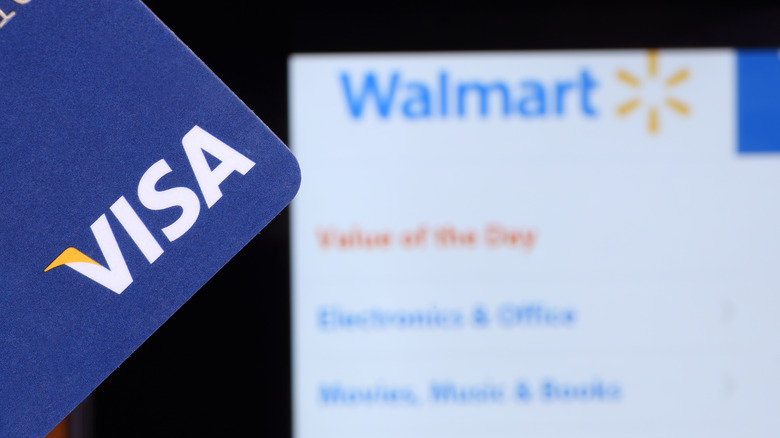Why Walmart Is In Trouble With The US Government
Walmart isn't just a place to get your groceries; it also positions itself as a one-stop shop that offers auto care, health services, and other forms of assistance. The super retailer offers financial services — ones that the Federal Trade Commission (FTC) claims aren't properly regulated. This week, the FTC sued Walmart "for allowing its money transfer services to be used by fraudsters, who fleeced consumers out of hundreds of millions of dollars."
As the government agency's Director of the Bureau of Consumer Protection Samuel Levine put it, "While scammers used its money transfer services to make off with cash, Walmart looked the other way and pocketed millions in fees. Consumers have lost hundreds of millions, and the Commission is holding Walmart accountable."
Forbes says Walmart first began offering financial services in 2009 by allowing customers to settle bills through the stores' Money Centers. Walmart's suite of financial offers soon expanded to debit cards, prepaid cards, and small business loans extended through Sam's Club. These days, the retailer facilitates credit card applications, cash deposits and withdrawals, and money transfer services on behalf of MoneyGram and Western Union, per CNN.
Nearly $200 million was linked to fraudulent transactions, FTC says
In all that time, however, Walmart had no anti-fraud policies — or, when they were finally put in place, its workers were either not sufficiently trained to detect fraud or were actually a part of the schemes themselves, taking tips in cash to allow the fraud occur, The New York Times explains about the FTC's lawsuit. The organization asserts that Walmart didn't have a consumer protection program until 2014, and it only began training staff (at some locations) to flag fraudulent payouts in 2017. Schemes the FTC identified as taking place at Walmart include "IRS impersonation schemes, relative-in-need 'grandparent' scams, [and] sweepstakes scams." Customers have also been warned about Walmart gift card scams.
Altogether, the FTC says at least $197 million has been linked to fraud complaints made between 2013 to 2018. An additional $1.3 billion could "possibly" be fraudulent. When asked to respond, Walmart claimed the FTC's lawsuit was "factually flawed and legally baseless," adding that it would "defend the company's robust anti-fraud efforts that have helped protect countless consumers." The FTC is asking Walmart to pay penalty fees and return the money to customers who were defrauded.

